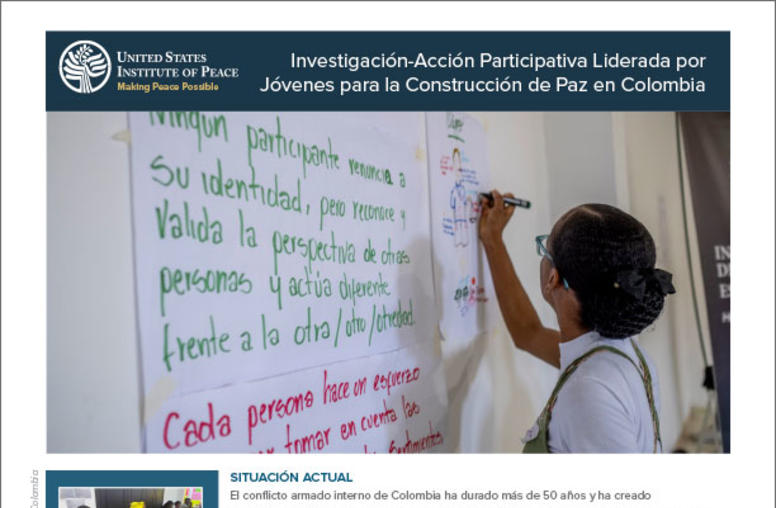The Elusive Consensus on Peace in Colombia
A Conversation with the Colombian Senate’s Peace Commission
Since taking office in August 2018, Colombia’s government has sought to devise new strategies to advance peace and security in a country long plagued by armed conflict and organized criminal violence. The tense electoral cycle was characterized by sharp divergences over both the 2016 peace agreement, signed by then-President Juan Manuel Santos and the Revolutionary Armed Forces of Colombia (FARC), and ongoing peace talks with the National Liberation Army (ELN). Despite lingering polarization, President Iván Duque has promised to forge unity over remaining implementation challenges and the future of dialogue with the ELN.
Political consensus around peace, however, has remained elusive. Duque has sought to balance his declared commitment to accord implementation with the desire of his own political coalition to modify certain aspects of the agreement or minimize their importance in the face of other economic and budgetary goals. The ELN talks remain suspended despite efforts to overcome the current deadlock.
In this context, the House and Senate Peace Commissions of the Colombian Congress represent unique fora for debate. These bodies include legislators from diverse political parties and are increasingly engaged in the search for compromise over key issues related to peace and security.
The United States Institute of Peace, the Inter-American Dialogue, and the Woodrow Wilson Center on Tuesday, December 11th hosted a conversation with three prominent members of the Colombian Senate’s Peace Commission. To follow the conversation on Twitter, follow #ColombiaPeaceForum.
Speakers
Roy Barreras
Senator, Partido de la Unidad Nacional
Michael Camilleri
Director, Peter D. Bell Rule of Law Program, The Inter-American Dialogue
Iván Cepeda
Senator, Polo Democrático Alternativo
Paloma Valencia
Senator, Centro Democrático
Steve Hege, moderator
Senior Expert on Colombia, U.S. Institute of Peace


